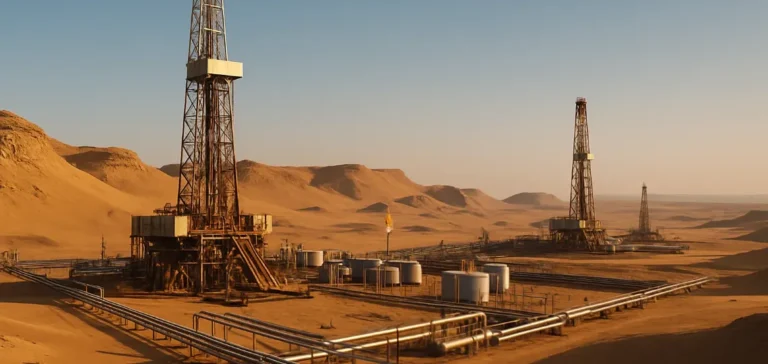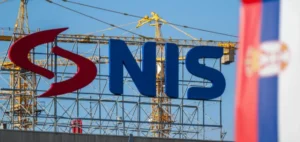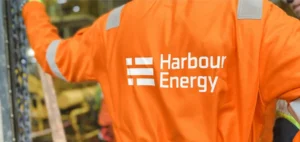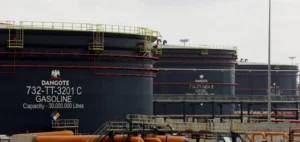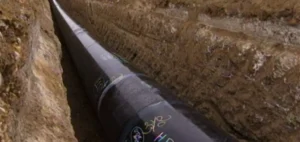The General Petroleum Company (GPC), an Egyptian public enterprise specializing in hydrocarbons, has announced a new oil discovery in the Abu Sannan basin, located in Egypt’s Western Desert. The well, named GPR-1X, is showing promising initial results, with daily production of approximately 1,400 barrels of crude oil and 1 million cubic feet of natural gas.
Technical characteristics of the discovery
According to information provided by Mohamed Abdel Meguid, Chairman and CEO of GPC, ongoing tests on this well confirm the estimated production levels. The extracted oil primarily originates from the Bahariya geological formation, recognized for its oil potential. Additionally, electric log analysis has indicated promising signs of further hydrocarbons in the Abu Roash G and B formations. However, these findings require additional technical evaluations before commercial exploitation.
A second success within three months
This discovery comes just three months after a previous successful exploration in the same region, announced last March. On that occasion, GPC emphasized the use of advanced technologies based on artificial intelligence (AI), developed in-house. These technological tools significantly improve exploration accuracy and extend production from mature fields, traditionally considered complex.
The strategy adopted by Egypt’s Ministry of Petroleum and Mineral Resources explicitly aims to increase national hydrocarbon production by optimizing the exploitation of existing resources. Within this framework, the Abu Sannan region constitutes a strategic target due to its proximity to existing infrastructure, facilitating rapid transport of crude oil to local refineries.
Impact on national reserves
This new well adds approximately 2 million barrels to Egypt’s recoverable oil reserves, further consolidating the country’s production goals. The continuation of such discoveries underscores the ongoing importance of the Western Desert region, despite the maturity of its basins. Such announcements attract interest from industry professionals, closely monitoring the development of technological capacities that extend the economic viability of existing fields.
With this series of discoveries, Egypt’s oil sector continues to strengthen its productive potential while optimizing available resources. These results align fully with national economic goals focused on sustainably increasing the country’s energy capacity.


